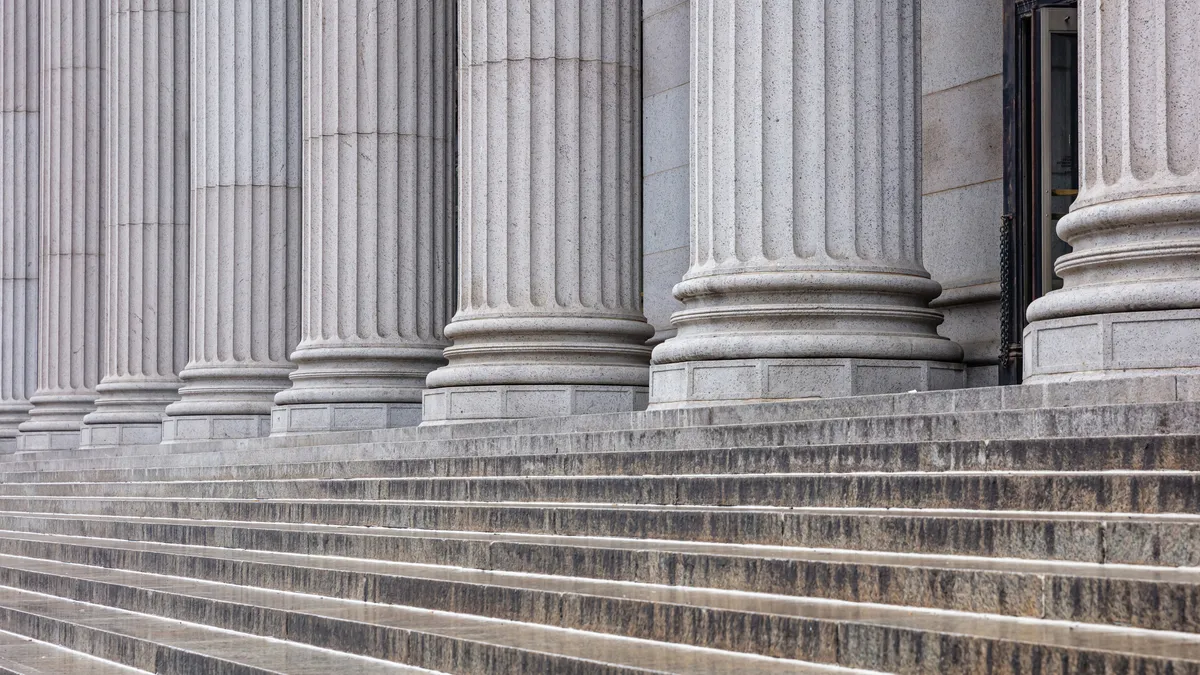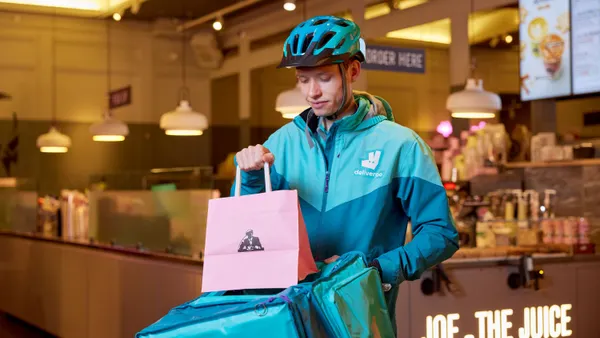UPDATE: Nov. 23, 2021: DoorDash will pay $5.3 million to settle a lawsuit concerning the classification of couriers who made deliveries between 2016 and 2020, ending an investigation the San Francisco Office of Labor Standards Enforcement began in 2019. About $187,000 will be set aside to cover the OLSE's costs and help with enforcement, according to the announcement. The remaining $5.1 million will be paid directly to 4,500 couriers, Bloomberg reports.
The probe followed allegations the delivery firm intentionally misclassified its delivery drivers as independent contractors so it could withhold sick leave. The aggregator was also accused of using driver tips for drivers' base pay.
DoorDash denies any wrongdoing but told Law 360 that the settlement represents "a fair compromise." This is the biggest settlement San Francisco OLSE has reached since it was created 25 years ago.
"While this wage theft complaint was filed three years ago, it covers conduct that DoorDash continued during the pandemic, a particularly devastating time for workers and small businesses," Office Supervisor Aaron Peskin said in a statement. "We hope this victory brings restitution and relief to those harmed, including the knowledge that this settlement is a tacit acknowledgment that drivers are workers — and as such, have rights and protections under the law."
Dive Brief:
- San Francisco’s district attorney has sued DoorDash, an on-demand food delivery service, alleging in a June 16 complaint that it misclassified its delivery workers as independent contractors, in violation of state law.
- Known as "dashers," the individuals work under the company’s control, the suit alleged, adding that the misclassification "was no mistake, but instead a calculated decision made to reduce the costs of doing business at the expense of the very workers providing the company’s core service of delivery." Misclassification deprives workers of labor safeguards, the city’s DA, Chesa Boudin, said in a statement; it also "puts law-abiding companies in the position of competing against employers who gain unfair savings by illegally classifying their workers" and deprives the state of payroll taxes, he said. The suit seeks "restitution for workers, an injunction requiring DoorDash to properly classify its delivery workers as employees, and civil penalties," according to the statement.
- DoorDash, however, said in a statement to HR Dive that Californians need flexible earning opportunities "now more than ever." The DA’s lawsuit "seeks to disrupt the essential services Dashers provide, stripping hundreds of thousands of students, teachers, parents, retirees and other Californians of valuable work opportunities, depriving local restaurants of desperately needed revenue, and making it more difficult for consumers to receive prepared food, groceries, and other essentials safely and reliably," said Max Rettig, the company’s global head of public policy, adding that the company intends to fight to maintain its arrangement.
Dive Insight:
Employers nationwide have faced increased scrutiny of their wage and hour classifications in recent years as the gig economy expanded. But California, in particular, has seen notable action.
The state’s supreme court in 2018 adopted a test that assumes a worker is an employee unless the business can establish that: (a) the worker is free from the control and direction of the hiring entity in connection with the performance of the work, both under the contract for the performance of the work and in fact; (b) the worker performs work that is outside the usual course of the hiring entity’s business; and (c) the worker is customarily engaged in an independently established trade, occupation or business of the same nature as that involved in the work performed, according to the state’s department of industrial relations.
The state then codified the test late last year, with a group of employers — including DoorDash — spending tens of million of dollars to oppose the bill. Now that it’s in effect, employers like Postmates and Uber have challenged the move in court; that litigation is ongoing.
For California employers, this legislation, known as AB-5, was expected to "open a Pandora's box of litigation in a pro-employee environment," Jesse Jauregui, a partner at Alston and Bird, told HR Dive at the time. It also could have a ripple effect: "Other states will be watching closely as a patchwork of gig economy legislation begins to develop across the country," Jauregui said.














